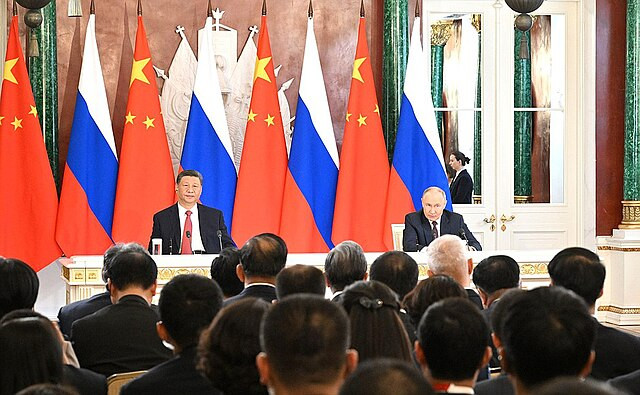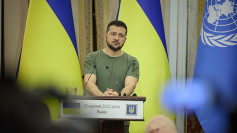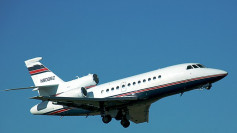Russian President Vladimir Putin hosted Chinese President Xi Jinping and dozens of international leaders in Moscow on Friday for the 80th Victory Day military parade, marking the Soviet defeat of Nazi Germany even as the war in Ukraine overshadowed celebrations and drew international scrutiny.
Putin stood alongside Xi on Red Square's reviewing platform beside Lenin's mausoleum, joined by leaders including Brazilian President Luiz Inácio Lula da Silva, Egyptian President Abdel Fattah el-Sisi, and Serbian President Aleksandar Vucic. The event featured more than 11,500 Russian troops and marked a major display of military force, including tanks, drones, and Yars intercontinental missiles. Russian state media highlighted the first-ever inclusion of drones like the Iranian-designed Geranium-2 in the procession.
Putin praised the role of Allied soldiers in defeating Adolf Hitler but emphasized Soviet sacrifices. "The Soviet Union took upon itself the most ferocious, merciless blows of the enemy," Putin said. "We highly appreciate the contribution of the soldiers of the Allied armies, the members of the resistance, the courageous people of China, and all those who fought for a peaceful future to our common struggle."
The parade, held annually on May 9, is Russia's most sacred national commemoration. However, since Moscow's 2022 full-scale invasion of Ukraine, it has become increasingly politicized. Ukrainian President Volodymyr Zelensky condemned the event as "a parade of cynicism... a parade of bile and lies," according to the Kyiv Post.
Putin's three-day unilateral ceasefire from May 8 to May 10 was rejected by Kyiv, which accused Moscow of continuing attacks. "The Kremlin's proposal for a three-day truce is not about peace, but about ensuring the safe conduct of the parade in Moscow. This is political manipulation," said Andriy Yermak, head of the Ukrainian Presidential Office.
Ukraine reported multiple ceasefire violations by Russia, including deadly guided bomb strikes on Ukrainian cities. Kyiv said, it "cannot be responsible for what happens on the territory of the Russian Federation," dismissing Moscow's calls for a truce as disingenuous.
U.S. President Donald Trump also pushed for a broader resolution, proposing a 30-day ceasefire and warning that "the U.S. and its partners will impose further sanctions" if Russia fails to comply. Trump spoke with Zelensky twice in the past two weeks, according to Ukrainian officials.
Despite heightened tensions, foreign delegations arrived in Moscow under heavy security. Ukrainian drone attacks earlier in the week shut down all four of Moscow's airports temporarily, underscoring the war's reach. North Korean troops, credited by Moscow with aiding in the defense of Russia's western Kursk region, also marched in the parade.
Meanwhile, Ukraine's allies gathered in the western city of Lviv to push for accountability. The EU's foreign policy chief Kaja Kallas, UK Foreign Secretary David Lammy, and French Foreign Minister Jean-Noël Barrot were among dozens of officials backing a special tribunal to investigate Russia's aggression.
Some European nations further protested the event by restricting airspace access for diplomatic flights to Moscow. The Latvian Foreign Ministry stated, "Russian propaganda and glorification of war crimes cannot be supported or encouraged." The Baltic states' closure forced reroutes, including Serbian President Vucic's last-minute detour through Baku.






